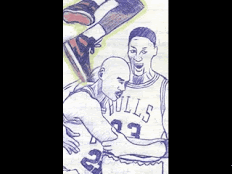09 October 2013
Lugbara Dance
Gaze is a traditional Dance of the Lugbara People. This Youth Dance reflects the Transition of the Dance Movements into the Style of their Neigbours in the Congo and is spreading across Uganda. Meanwhile, Agwara is a Dance from the Lugbara and Kebu people in the West Nile Region, bordering the Congo and the Sudan. The Dance got its Name from the Agwaras, the local Trumpets. The Men play these Horns as the Women dance. Duluka which means "Dance" in Nubian Language, is considered another Lugbara Dance, a Community and Tourist Attraction where Music can even be played on Banana Stems, melodic Stuff; Nambi is performed at Weddings...
28 August 2013
Lugbara Kingdom?
Article 246, Section 3 and Sub-section 6 of the Constitution of Uganda defines a Cultural or Traditional Leader such as the Kabaka of Buganda and the Omukama of Bunyoro (plus Agofe of the Lugbara) as follows: “For the Purposes of this Article, ‘traditional leader or cultural leader’ means a king or similar traditional leader or cultural leader by whatever name called, who derives allegiance from the fact of birth or descent in accordance with the customs, traditions, usage or consent of the people led by that traditional or cultural leader”.
According to History, the Lugbara only had Clan Heads, not a tribal King but lived harmoniously. Can one overall democratic King strengthen their Unity? On WestNileNet (an Online Forum), Angelo Izama supports the Quest for a Lugbara Leader, “Good people, some of you may recognize that my name Angelo Opi-aiya Izama is similar to that of Angelo Adalla Izama, the late Paramount Chief of Madi. The late Izama is my Grandfather and I think my middle name ‘Opiaiya’ refers to the scattering of that Authority or put it differently Responsibility. I’m aware of the renewed Interest in redefining cultural Meaning of traditional Institutions driven mainly, in my View, by elite Accommodation of the recent Politics of political Patronage. There is nothing wrong with this. Political Organisations by their Nature are opportunistic and if there are some who argue that creating a Kingdom Status for the Lugbara has advantages - well, they should be allowed to make their Argument! It has however to be an intellectually honest Process. West Nile's egalitarian Nature, what has been described by Ambassador Harold Acemah as institutionalized traditional Republicanism, has always for me been a Higher Calling than some of the Pretensions to European-style Monarchy... Opi boronji (or the sons of Chiefs) as is my humble Heritage was not a Status that needed pampering by anyone but was a Call to Service as the Historiography attests. In Ma'adi cultural Tradition where the Opi and the Ojoo are summoned to constitute Structures of Need during Crisis - it’s done so that there is Leadership never as an Imposition of Rule as some have suggested. There is something special about this System that places a Premium on Responsibility and not Entitlement, on Power deriving from Authority and that Authority itself based on a Position of Responsibility…”
According to History, the Lugbara only had Clan Heads, not a tribal King but lived harmoniously. Can one overall democratic King strengthen their Unity? On WestNileNet (an Online Forum), Angelo Izama supports the Quest for a Lugbara Leader, “Good people, some of you may recognize that my name Angelo Opi-aiya Izama is similar to that of Angelo Adalla Izama, the late Paramount Chief of Madi. The late Izama is my Grandfather and I think my middle name ‘Opiaiya’ refers to the scattering of that Authority or put it differently Responsibility. I’m aware of the renewed Interest in redefining cultural Meaning of traditional Institutions driven mainly, in my View, by elite Accommodation of the recent Politics of political Patronage. There is nothing wrong with this. Political Organisations by their Nature are opportunistic and if there are some who argue that creating a Kingdom Status for the Lugbara has advantages - well, they should be allowed to make their Argument! It has however to be an intellectually honest Process. West Nile's egalitarian Nature, what has been described by Ambassador Harold Acemah as institutionalized traditional Republicanism, has always for me been a Higher Calling than some of the Pretensions to European-style Monarchy... Opi boronji (or the sons of Chiefs) as is my humble Heritage was not a Status that needed pampering by anyone but was a Call to Service as the Historiography attests. In Ma'adi cultural Tradition where the Opi and the Ojoo are summoned to constitute Structures of Need during Crisis - it’s done so that there is Leadership never as an Imposition of Rule as some have suggested. There is something special about this System that places a Premium on Responsibility and not Entitlement, on Power deriving from Authority and that Authority itself based on a Position of Responsibility…”
08 May 2013
The Funny Side of Learning Lugbara
Certain words have more than one meaning, so when pronouncing them, be sure of the sound! Otherwise, while introducing your husband (Ago), you might actually induce laughter by calling him a Pumpkin (Ago). Wild Pigs or Warthogs (Ezo), except maybe Pumbaa the Disney Cartoon, are not usually beautiful. But if your Girlfriend or Fiancée (Ezo) is beautiful, watch your Tongue! When describing parts of a House (Jo), you will be amazed. The Door is the House-Mouth (Jo ti), Floor is the House-Stomach (Jo ale), Roof is House-Head (Jo dri) but funniest of all, the Veranda is the House-Buttocks (Jo eti). When feeling sorry for someone, Baganda say "Bambi", but in Lugbara, that sounds like: Let us have sex ['Ba mbi]! So be careful how you use it! Some Bantu, Luo, Ateso and foreign names can actually be used as Lugbara phrases or words eg Baguma [They laughed at me], Rukundo [Name became famous later], Aine [Looking at Salt], Opiyo [No King], Onya [Whiteant], Mali [Wealth], Malaga [Spoon], etc...
Subscribe to:
Posts (Atom)




